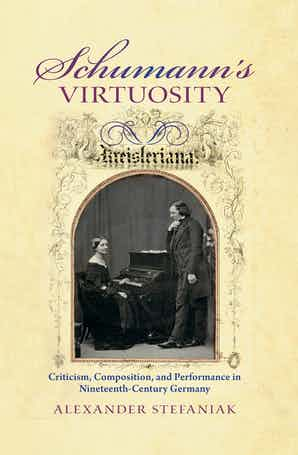
Hopkins Fulfillment Service
Schumann's Virtuosity Criticism, Composition, and Performance in Nineteenth-Century Germany
Author: Alexander Stefaniak
Publisher: Indiana University Press
Schumann's Virtuosity Criticism, Composition, and Performance in Nineteenth-Century Germany
Juilliard Store
144 West 66th Street
New York NY 10023
United States
Choose options

Schumann's Virtuosity Criticism, Composition, and Performance in Nineteenth-Century Germany
Juilliard Store
144 West 66th Street
New York NY 10023
United States
Schumann's Virtuosity Criticism, Composition, and Performance in Nineteenth-Century Germany
Juilliard Store
144 West 66th Street
New York NY 10023
United States
